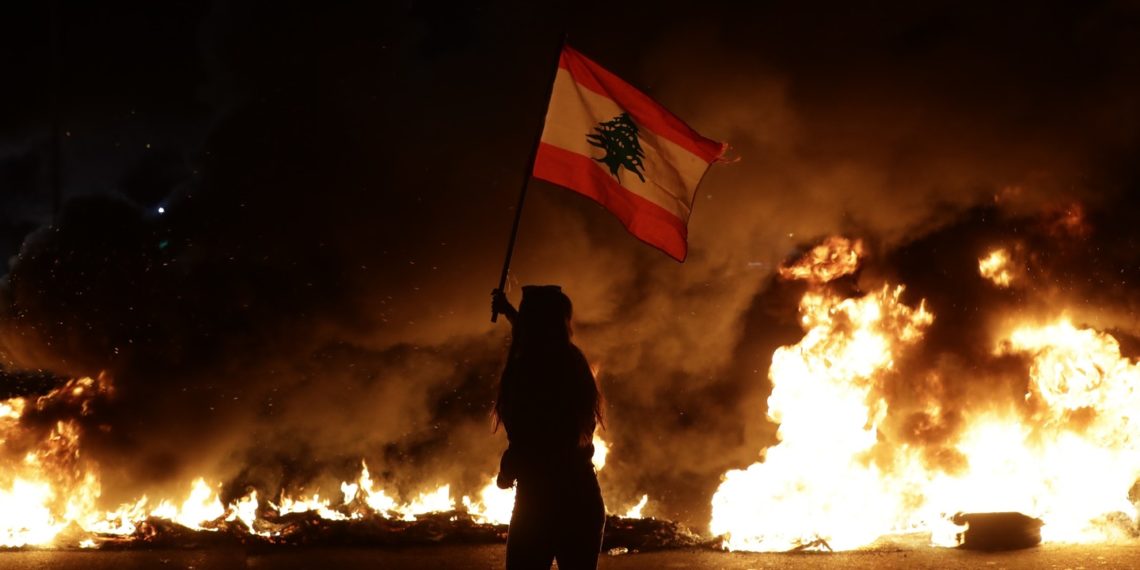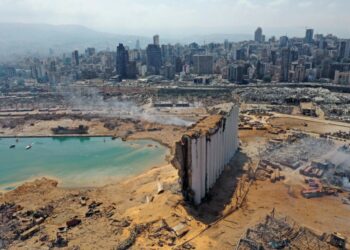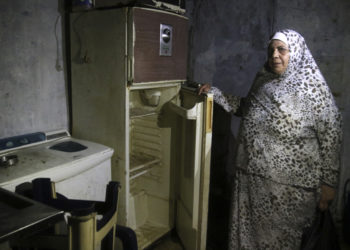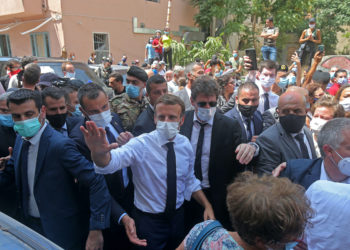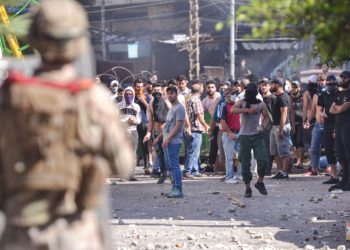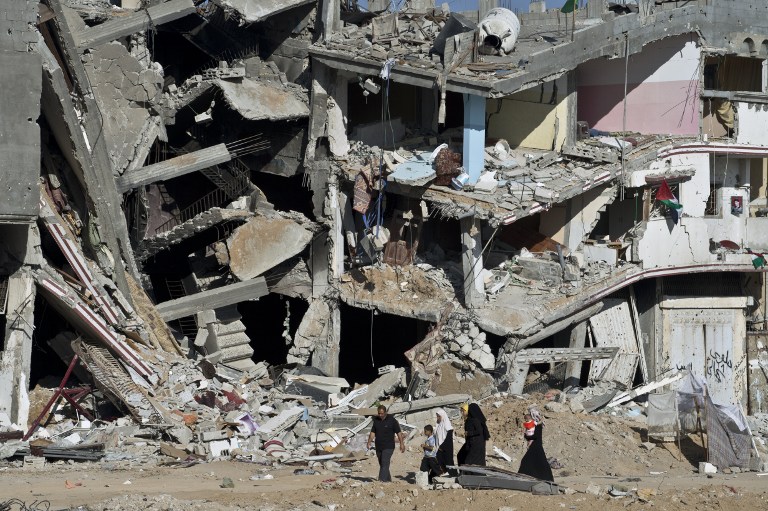Anti-government demonstrations in Lebanon marked 100 days on Saturday, an unprecedented record for the country of approximately 5 million. The Lebanese people never protested as spontaneously and collectively against the dominant political class as they have in the last months.
Sectarian elites and a history of sectarian strife and agitations had created barriers between the citizens, but dramatic developments and changes have now eroded these dividing lines and united the nation against its hereditary, ruling elite.
The protests raised the people’s hopes that change is possible if they band together and form a cross-sectarian movement to force the political class to implement genuine reforms.
Corruption in Lebanon
Over the years, several political parties claimed that they aimed to combat corruption. However, over more than a decade, these parties proved erroneous and fell in the quagmire of corruption.
The protest movement was able to break taboos previously considered sacred. Several Lebanese politicians, who rejected to be prosecuted before the October Uprising, were brought to justice.
Fouad Siniora, former prime minister and one of the most prominent politicians accused of corruption, was forced to testify before the court of wasting about 11 billion dollars during his premiership between 2006 and 2008. The former ministers of telecommunications, Jamal Jarrah and Muhammad Shokier, also testified because of mismanaging the ministry after rejecting to do so before the uprising.
Movement’s Weaknesses
Despite these successes, Lebanon’s protest movement suffers from several weaknesses.
First, the movement is leaderless. Although this was favorable at the early stages since the protest’s main aim was to force Prime Minister Saad Hariri’s government to resign, leadership is essential to formulate clear political rhetoric, set objectives, and prevent sectarian political parties and foreign players to intervene to pursue their own interests.
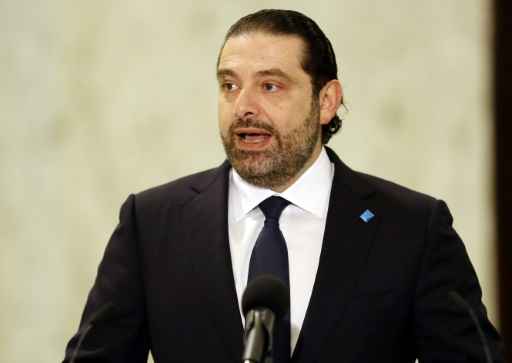
Second, the movement, though it called for replacing the government with a non-partisan and technocratic cabinet, did not suggest names to hold cabinet ministries or propose a clear reform program. Their excuse was that their aim was not proposing reforms but exerting pressure on the political parties to initiate change.
Third, it did not have a clear approach and strategy to express their rejection and opposition to the existing political class. In multi-sectarian societies, the traditional methods of demonstration against the governing elites should be formulated cautiously. This is because what starts as a civil non-sectarian movement might morph into sectarian conflict and eventually civil strife. For instance, the movement called for blocking the roads, but this raised tensions between the Sunnis and Shiites when the main highway between Beirut and Shiite-dominated southern Lebanon was blocked.
Political Class’ Strategy
The political class, on its turn, followed two strategic approaches to accommodate the protests.
First, they considered themselves part of the movement and called on their followers to participate in the protests. There is a widespread conviction in the country that the Lebanese Forces Party and Future Movement played an integral part in blocking the main roads and paralyzing the country since October 17 to exert pressure on the largest coalition (March 8 Coalition) in the parliament to nominate once again Saad Hariri for the premiership.
Noticeably, the Future Movement is widely considered one of the most corrupt parties since its founder, former PM Rafik Hariri, laid down the foundations of the economic and financial policies that eventually led to the current crisis plaguing the country.
Second, several parties distanced themselves from the protests and supported their demands like Hezbollah and the Free Patriotic Movement. After one week of rallies, Hezbollah called on its supporters to withdraw from the protests due to fears that demonstrations might lead to chaos and instability.
What Is Next for Lebanon?
A new government has been formed of non-partisan elites headed by academic Hassan Diab. Many groups in the protest movement rejected participating in the cabinet and considered it non-representative of the protestors’ demands. The movement should employ a different approach to obtain its objectives.
It should negotiate with the PM Diab to implement its reform program, especially as the economic situation is deteriorating and the movement is unable to force the political class to organize early parliamentary elections.
Protesters who reject the new govt and demand early parliamentary elections making their voices heard – #Lebanon https://t.co/F3B7xCCwg2 pic.twitter.com/I8LLxip0VD
— Zeina Khodr (@ZeinakhodrAljaz) January 25, 2020
Additionally, the protest movement should raise reasonable objectives. For instance, eliminating sectarianism is impossible at this stage because it might lead to civil war since several sects, especially minorities like Christians, will reject it and consider it a threat to their interests in the political system.
The movement also called for organizing early parliamentarian elections, which might not be in its interest to secure the victory of its candidates. The protestors should be aware that the sectarian mentality is as yet dominant, and early elections might reproduce the same corrupt political class.
As time passes, the Lebanese people’s support for the movement will gradually decrease if it does not provide a detailed economic and social reform program. The reform process is gradual and cannot be achieved with one major step, not to mention in multi-sectarian societies.
Disclaimer: The views and opinions expressed here are those of the author and do not necessarily reflect the editorial position of The Globe Post.

